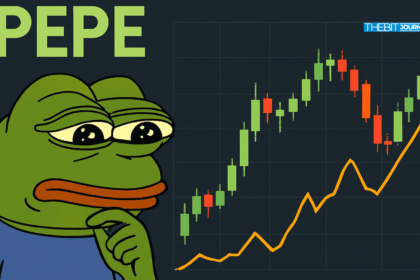South Korea must swiftly integrate cryptocurrency into its institutional framework to stay globally competitive, warns Korea Exchange Chairman Jeong Eun-bo. Speaking to Maeil Kyungjae, he expressed that the crypto market’s growth demands regulatory action. “The digital market has grown in size and influence to the point where traditional markets cannot ignore it. The country should quickly try to include crypto assets in the financial sector,” Jeong added.
Inside South Korea’s Crypto World
South Korea has developed a unique and vibrant crypto ecosystem, shaped by its culture and technology.
Crypto speculation is huge in the country, with stablecoins often trading well above $1. About 10% of people own crypto, and the government plans to make the country a metaverse leader. Locally, Kakao and Naver rule the internet, outpacing Google and Facebook. This cultural difference helps explain why South Korea has developed its own crypto culture, with blockchain-based projects like the game Zepetto quietly amassing millions of users.
Boomed in 2017 with the “Kimchi premium,” South Korea’s crypto industry is where Bitcoin traded higher due to capital controls. The country’s negative view of gambling, combined with a love for high-risk speculation, fueled growth. In 2021, adoption surged, driven by younger generations embracing NFTs and Web3. However, regulatory crackdowns have reduced the number of crypto exchanges, leaving only a few major platforms. Despite this, the market remains optimistic as the government pushes supportive policies.

On December 3, South Korea’s martial law declaration caused Bitcoin prices on local exchanges to drop $30,000, reaching $65,000. This led to a sudden liquidity shortage, creating price imbalances and large spreads. A trader noted that the crash wouldn’t have been as severe with more liquidity providers. Once martial law was lifted, BTC prices rebounded to $95,000.
Crypto’s Rise in South Korea Limited by Institutions
Jeong highlighted that cryptocurrency was a key topic at the recent World Exchange Market (WFE) summit, where global exchange leaders debated the future of virtual currencies. According to him, there was broad consensus that ignoring the crypto market could threaten the profitability of traditional stock exchanges.
“The average daily trading volume of the domestic stock market is approximately 20 trillion won [around $14 billion]. But the virtual currency market has surpassed this since Donald Trump was elected as US President,” he remarked.
While crypto’s popularity in South Korea has surged, the market remains dominated by private investors. This differs from other nations, where institutional players are becoming significant drivers of growth. Jeong noted that no cryptocurrency firms are listed on the Korea Exchange, and companies are currently unable to hold crypto on their balance sheets.

Additionally, the country has yet to approve Bitcoin spot ETFs—a stark contrast to international markets that have moved forward with similar products. Jeong pointed out the inconsistency in allowing leveraged trading for conventional ETFs while banning Bitcoin spot ETFs, calling it a questionable approach to investor protection.
Jeong argued that treating cryptocurrencies merely as speculative assets undermines their potential for creating economic value. “We must hurry to institutionalize the virtual currency market to create new added value,” he said. “If we are vague with our treatment of virtual currency and treat it as a speculative asset, we will fall behind in terms of international competitiveness.” The Chairman also warned that without decisive action, South Korea risks falling behind its international rivals, many of whom are already integrating crypto assets into their financial ecosystems.
South Korea’s Struggle to Stabilize After Impeachment Crisis
South Korea’s acting president, Han Duck-soo, is working to stabilize the country after President Yoon’s impeachment. The Bank of Korea is intervening as the win hits a 2008 low and stocks drop. Amid the turmoil, crypto trading surged, especially in altcoins, despite Bitcoin’s local price drop. Han reassured U.S. President Biden that its country’s foreign policies remain unchanged. With Yoon facing legal trouble, the country is struggling with domestic instability and external challenges, including U.S. trade policies under President-elect Trump.
Conclusion:
As South Korea’s crypto market grows, clear regulations and institutional support are key for stability and innovation. Jeong Eun-bo urges swift integration of cryptocurrencies into the country’s framework to remain globally competitive. The future of finance is changing, and Korea has the opportunity to lead if it moves quickly.
Stay tuned to The BIT Journal and watch Crypto’s updates. Follow us on Twitter and LinkedIn, and join our Telegram channel to be instantly informed about breaking news!
Frequently Asked Questions (FAQs)
Why does Jeong Eun-bo call for urgent action on crypto?
He warns that South Korea risks falling behind without crypto integration into its financial system.
What makes South Korea’s crypto market unique?
It has a strong speculative culture and popular blockchain-based projects like Zepetto.
How did South Korea’s crypto market boom?
The “Kimchi premium” in 2017 caused Bitcoin prices to rise, driving market growth.
What challenges does the crypto market face in South Korea?
Regulatory crackdowns limit the number of exchanges and institutional participation.
What happened during the December 3 price drop?
Martial law caused a liquidity shortage, making Bitcoin prices drop before recovering.






























